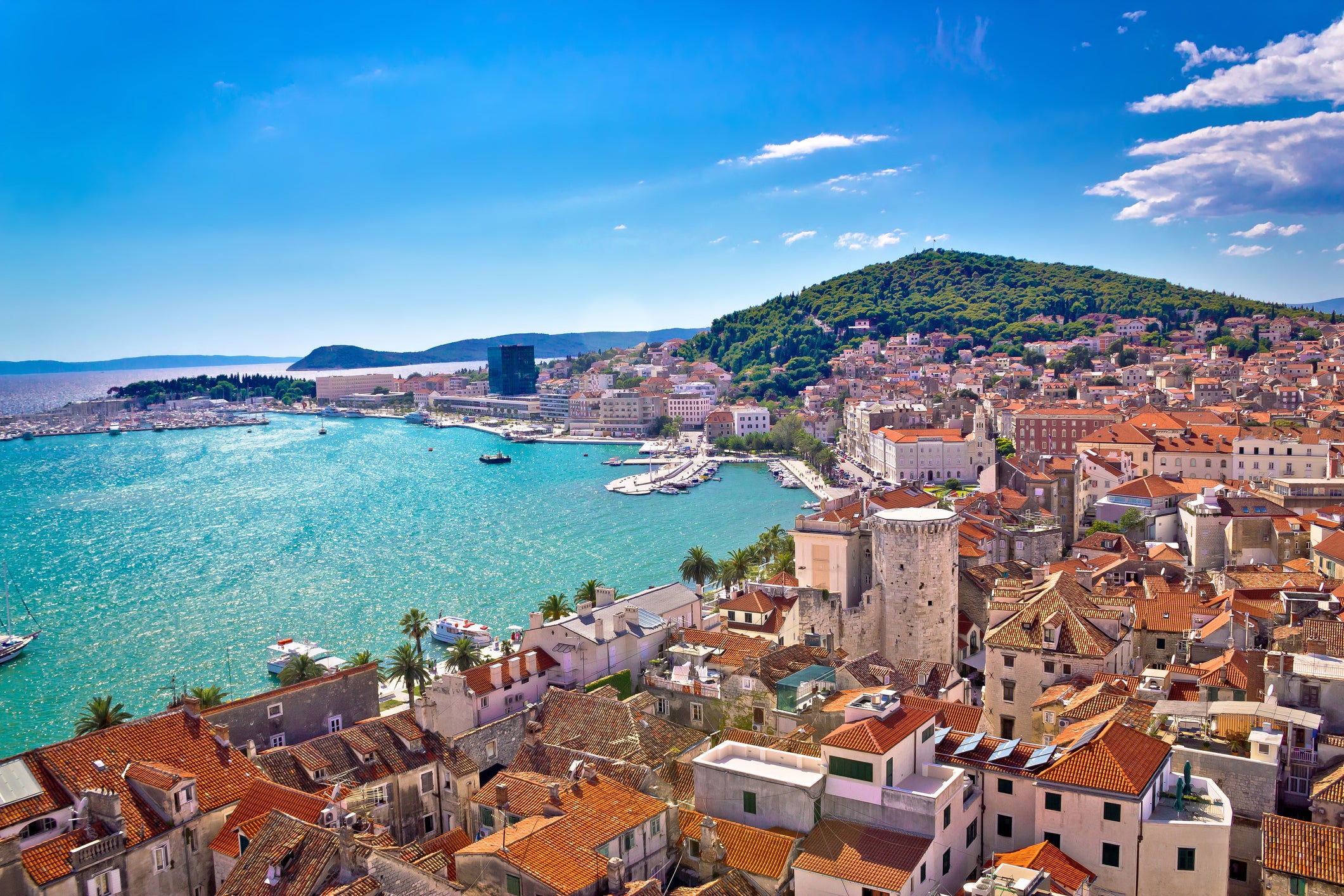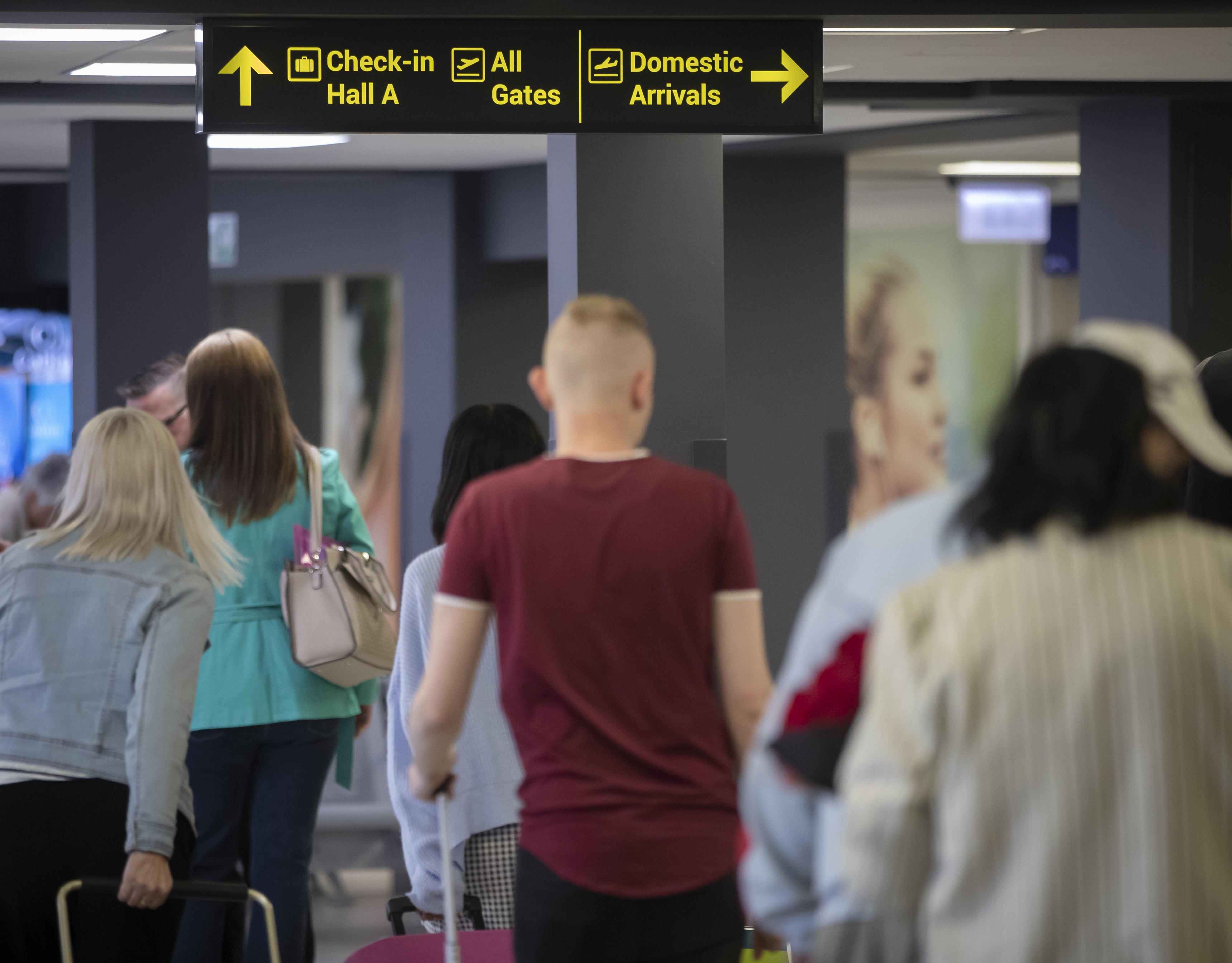Why can’t I get a refund for my trip to crisis-hit Peru?
Simon Calder answers your questions on last-minute cancellations, leftover foreign currency, EU food regulations and how best to visit the Silk Road


Q In March I have a tour to Machu Picchu booked as an add-on to a cruise. But Peru is not safe: the country is in lockdown until the end of January. I won’t feel safe even in March, and I want to cancel, but the travel firm won’t refund my deposit. What are my rights?
Lesley R
A The Inca citadel of Machu Picchu is rightly seen as one of the most spectacular locations on Earth – and the gateway to it, the former Inca capital of Cusco, is a city like no other, combining the marvels of the pre-Colombian culture with the imprint of Spanish colonialism. The Sacred Valley between the two is also intriguing and rewarding, and I urge anyone who is in the area to invest the time and money in a visit to the highland realm.
Normally the main hazard I warn about is altitude sickness at Cusco, which is 11,150ft above sea level, followed by the dangers of street crime. Right now, as you say, there are other concerns.
Four weeks ago, the Peruvian congress made a third attempt to impeach the president, Pedro Castillo. When he tried to dissolve congress he was replaced by his deputy and arrested. Protests against Castillo’s ousting have closed airports and highways, and on 14 December a state of emergency was declared. “Protests are unpredictable and can escalate quickly and include violence,” warns the Foreign Office – citing incidents in Lima, the capital, and Cusco. “Travel to some parts of the country may not be possible.”
The rail link between Machu Picchu and Cusco was also temporarily halted, then partially restored. All of which looks dreadful for anyone with a trip planned to Peru, though the Foreign Office does not warn against travel there. While I understand your wish to cancel, the firm is not behaving unreasonably by asking you to wait and see.
I believe there is a good chance stability will be restored in the next few weeks. Tourism is crucial to the nation, with millions dependent on overseas visitors. If nothing changes within a month or so, then you can ask for a refund under the Package Travel Regulations – citing “extraordinary circumstances” which “significantly affect the performance of the package”. But I hope your trip goes ahead, smoothly.

Q I have about £60 worth of Croatian kuna left over from my last holiday there. I know Croatia joined the euro area on New Year’s Day. I imagine the old currency will be worthless quite soon – but I am struggling to find an exchange bureau that would change them for me. Have you any tips, please?
Helga M
A Generally, taking excess foreign currency notes home rather than changing them back to sterling at a dismal rate is a good plan – so long as you plan to return to the country within a reasonable timespan. The longer you hold on to foreign funds, though, the higher the risks: galloping inflation eroding the value; notes becoming obsolete; or, as has just happened in Croatia, the currency changing completely.
The Adriatic nation is celebrating its accession to the eurozone, as well as the Schengen area, on 1 January 2023. Life has just become much simpler for traders and millions of foreign tourists from within united Europe, who make up 70 per cent of the total international visitors.
But for you and me (I currently have 300 kuna, worth about £35), the unification move presents a problem. UK company LeftoverCurrency.com buys notes and even coins, but you can expect to lose about a third of the value on the transaction.
Happily, within Croatia, kuna notes can be exchanged at banks and post offices for the whole of this year. The European Central Bank stipulates: “Kuna banknotes and coins can be exchanged until 31 December 2023 free of charge for up to a maximum of 100 kuna banknotes and 100 kuna coins per transaction.”
Ideally, you could go there yourself to make the change: I particularly commend a city break to Zagreb, Split or Dubrovnik in the first half of October, when fares and crowds are low and the autumn weather often excellent.
Failing that, I bet you know family or friends who will be heading for Croatia and can “launder” the cash for you by heading to the nearest bank. A fair solution would be for them to give you £50 (more than you are likely to get by any route) with the extra tenner representing a couple of drinks or a cheap lunch as a reward for visiting the bank. Or you could just send the currency to the RNIB, which specifically welcomes “all foreign banknotes, no matter how old” as donations.

Q Can we take chocolate, crisps and coffee to the European Union? We want to take them as gifts to family.
Alexandra N
A The fact that you are even having to ask the question shows what a bizarre timewarp the UK has chosen to end up in after the Brexit referendum. Your request takes me straight back to the early 1970s, and a nation wracked by division, industrial strife, and isolation from continental Europe. Half a century later, here we are again – with the renewed issue of what can be taken across the Channel, or even over the Irish Sea, without fear of confiscation or import duty.
After leaving the European Union, and furthermore choosing to be outside the customs union, the British have opted to be subject to all the restrictions that they helped draw up while part of the EU. We have the added eccentricity of building a border in the Irish Sea, and applying the rules equally when travelling from England, Wales or Scotland to Northern Ireland.
Meat and unprocessed dairy products are banned, so ensure you finish that ham or cheese sandwich before you arrive at your destination. “You may have to undergo official controls by the authorities,” the European authorities warn. “If you are carrying any meat or dairy products, which you have not declared, they will be confiscated and destroyed; you may also be fined or face criminal prosecution.”
So what about chocolate? Standard bars are permitted, though other confectionery is banned if it is “made with high levels of unprocessed dairy ingredients” – one example is halva. A box of chocolates in which some of the sweet treats are filled with cream could present a problem. Crisps and coffee will be acceptable, unless you are thinking of taking them in what could be seen as commercial quantities; in that unlikely case, you would need to pay duty on your purchases.
At least, though, as you queue up to have your passport stamped and your belongings checked, you can content yourself with the assurance that the UK has taken back control.

Q My wife and I enjoyed your recent article about trips along the Silk Road. We were booked on such a trip in May 2020, which was cancelled because of Covid, of course. We are thinking about trying again in May this year. My question is: what do you think about booking through a local travel company like EuroAsia Travel or Global Connect? They seem to be a lot cheaper and a lot more flexible than the big boys, but what are the risks?
Clive R
A I am delighted to hear you will be travelling to central Asia, a much-undervisited part of the world that is full of wonders. I am especially fond of Uzbekistan, which I believe delivers the best single-country experience along the ancient Silk Road axis. But Kyrgyzstan is also well worth exploring. You can hike or bike amid spectacular mountain scenery, get acquainted with the nomadic way of life, and enjoy the shabby Soviet chic of the capital, Bishkek.
The question is, how best to organise the trip? I believe there are three options, not two. You could plan the whole thing using local transport (such as the fabulous high-speed Afrosiyob train scything through Uzbekistan), which is what I did. This will almost certainly be the lowest-cost solution, but you will lose the value that travel professionals can provide. I have not tried EuroAsia Travel or Global Connect, but I imagine they are good-quality providers who deliver great experiences. It may even be that they help UK adventure operators with ground arrangements.
Cutting out the margin paid to a British travel firm is always a tempting choice, and I have done exactly that by engaging a local firm in the Azores to put together a marvellous trip. But central Asia is a different proposition. Booking through a UK firm confers plenty of protection, so long as it is a proper package holiday. Should the outbound flight go awry, or a mountain pass in Kyrgyzstan be closed, or even the local partner go bust, the travel company needs to sort it out. The legal duty of care to ensure a safe operation is especially valuable.
In your position, I would seek options from firms such as G Adventures, Intrepid and Exodus. If the itinerary or timings do not work for you, then one of the local providers will, I hope, be able to arrange a great trip for you.
Email your question to s@hols.tv or tweet @simoncalder






Join our commenting forum
Join thought-provoking conversations, follow other Independent readers and see their replies
Comments